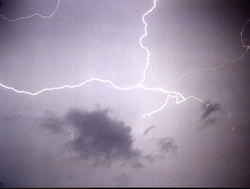 Novel titles can be derived from a variety of sources. A casual perusal of the fiction section of any bookstore will confirm this. In my previous two blogs I mentioned two: the story’s MacGuffin (defined as a plot device that motivates the characters and advances the story) and a snatch of dialog. There are numerous other categories you can use as the source of your titles. Here are a few:
0 Comments
 Last time I talked about using your book’s MacGuffin as the title. I did this in my new novel, The Peril Protocol. Another source of your novel’s title could be a bit of dialogue (spoken or internal). Of course, don’t use any dialogue critical to your plot. For example, a title such as The Butler Did It for a mystery novel in which the butler committed the crime probably would guarantee low sales. In my previous novel about a plane crash one of the characters, an aircraft crash investigator, gets a phone call about the crash and on learning the details “… he knew it was a fatal impact.” As soon as I wrote the chapter, I knew I had the title, so, Fatal Impact became the title of my first novel. Since book titles are not copyrighted, you can have a title that was used for previous books. The big caveat with this is you don’t want to use a title of some famous work or have your title the same as another book and also have a similar plot. It wouldn’t be a good idea to title your novel about American expatriates traveling to Pamplona for the running of the bulls, The Sun Also Rises. You might find yourself sued by the Hemingway estate. Even if your book, titled The Grapes of Wrath, was about housewives pulling off a bank job and not a poor 1930’s dust bowl family traveling to California, you probably wouldn’t want to use the title. But, a title similar to the work of a novelist who’s not an American icon, particularly if it didn’t hit the bestseller list, probably wouldn’t cause a ripple. Next time I’ll give you a listing of ideas to help you develop your novel’s title.  You’re in a bookstore. The coffee’s fresh, the muffins are hot, and book spine titles of every genre sparkle like Saturday night movie marquees. As you browse the shelves, suddenly, like a nugget of gold among stones in a stream, one title jumps out at you. Plucking it from the shelf you begin to read and, low and behold, its everything you’ve been searching for. Grinning, you head for the checkout counter with your find under your arm. Now, book titles don’t always portend you’ll have the greatest read of the past half century. But, they should evoke excitement, anticipation, inquisitiveness, or at the very least mild interest. No doubt, book titles are important. So, how do you come up with a good one? One that will help sales? Sometimes a title can hit you like a bold of lightning and immediately you know it’s the right one. At other times you may have to search, mining a vast wealth of knowledge (yours and others) to come up with just the right one. In my new novel, The Peril Protocol, I had the title as soon as I fleshed out the plot. One of the main characters, Dr. Francis Peril, has created a protocol to cure a particular virulent form of meningitis. The Protocol goes on to become a significant point of contention throughout the novel. It just followed that The Peril Protocol would be the title. The name had a certain flow and air of mystery (at least in my mind). This brings me to one category of book (or film) title and this is the MacGuffin. MacGuffin was a term popularized by the famous movie director, Alfred Hitchcock. Basically, its "a plot device that motivates the characters and advances the story". Obviously, the MacGuffin doesn’t have to be the title, but if the MacGuffin is a cool sounding name, it makes a great title. The paradigm of the MacGuffin is the John Houston film, The Maltese Falcon based on the novel by Dashiell Hammett of the same name. The story is about a detective dealing with three shady characters all in pursuit of a valued statue (the Maltese Falcon). Other novels using MacGuffin’s as the title include The Moonstone by Wilkie Collins; Deltora Quest by Emily Rodda; and J. K. Rowling’s books in the Harry Potter series such as Harry Potter and the Deadly Hallows, Harry Potter and the Chamber of Secrets, and Harry Potter and the Goblet of Fire. If your book contains a great sounding MacGuffin and needs a title, why not consider using the MacGuffin?  So, you have an idea for a novel. What do you do next? For example, the thought of a man with amnesia found by the police wandering the streets rattles around in your brain. “Hey,” you say, “This would make a great novel.” OK, you may be right. But, a guy with amnesia wandering the streets may be poignant, but it isn’t too exciting. The idea needs something else. It’s at this point that, when I get an idea I know has potential but I find wanting, I play the “what if?” game. What’s this, “what if?” game? It’s quite simple. I take an idea and ask , “What if … ?” Take the man with amnesia premise. What if a man with amnesia is found by the police wandering the streets? I then try to answer the question. It could be something like, “He’s taken to the hospital and while sleeping in his room, someone sneaks in at attempts to kill him. He awakens just in time to thwart the killer.” Now, I have other questions: “Why is this man marked for murder? What has he done or seen or heard that he doesn’t recall?” You get the idea. I’ll give you another example, this time from my novel, Fatal Impact. When I worked full time for the VA I did a fair amount of travelling, which usually involved flying. I don’t think I have a fear of flying, but I just don’t trust a vehicle that you can’t pull over and check under the hood when things don’t go well. On one trip while waiting for the plane to taxi to the runway I began daydreaming about the plane crashing. Then, the “what if?“ game kicked in. What if I could somehow get off the plane before it crashed? That lead to more questions like: How could someone actually exit a plane just before it crashed? Or, could someone appear to be aboard a plane and not actually board? By the end of trip I had the basic plot for Fatal Impact. In my new novel, The Peril Protocol, I knew I wanted to have a story set in a hospital, a venue I knew a lot about. I also knew that I wanted to address the use of experimental drugs. And, just for good measure, I wanted a serial killer thrown into the mix. My “what if?“ started out something like this: What if a beautiful physician gets the fellowship of a lifetime under a brilliant and charismatic specialist only to be confronted by a reporter who claims her mentor is the most horrific serial killer since Jack the Ripper? Playing the “what if?” game can help you flush out your idea for a great novel. Why not give it a try? |
Archives
June 2023
Categories |
 RSS Feed
RSS Feed